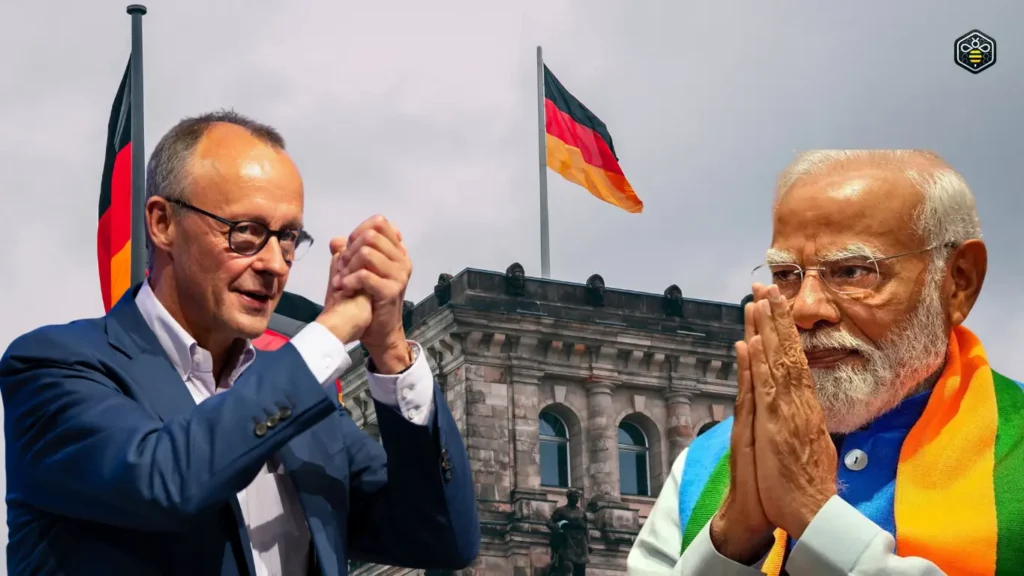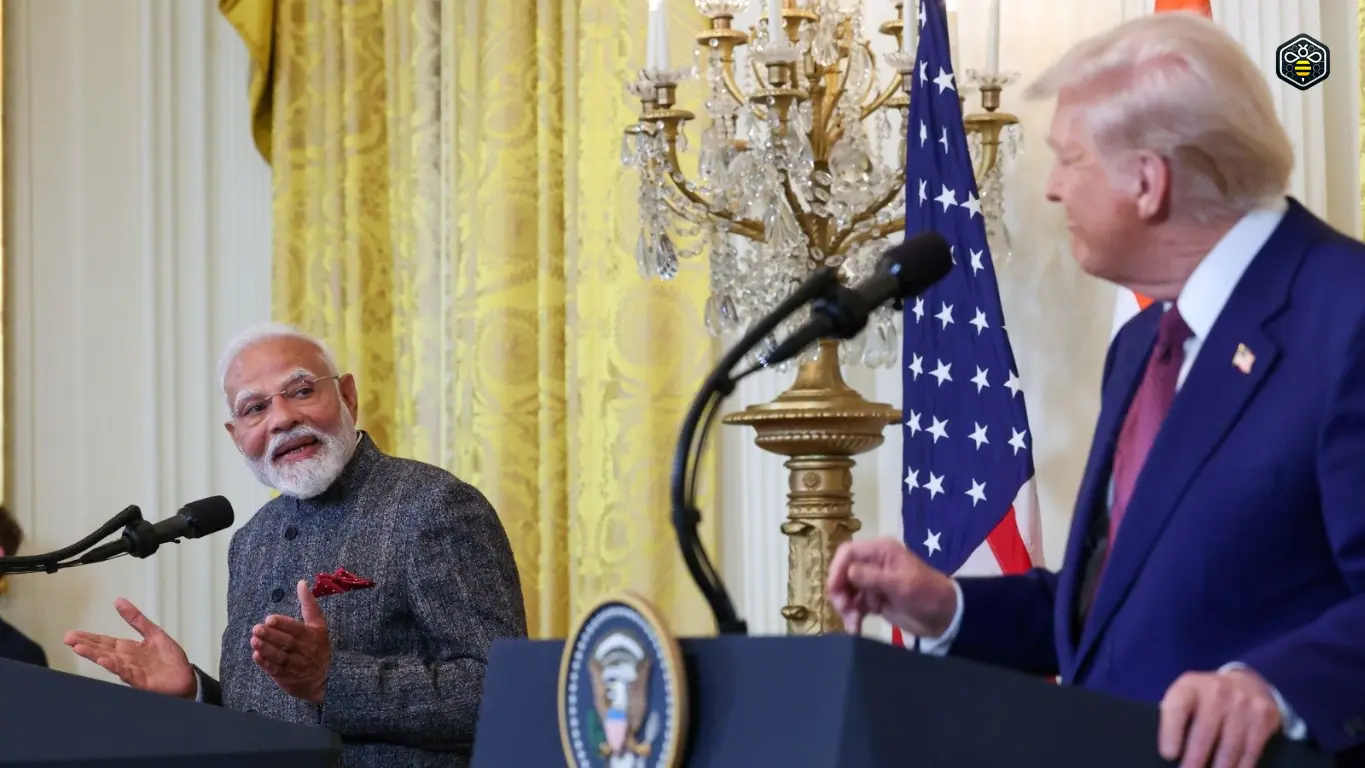
The leadership change in Germany marks a pivotal moment in its global partnerships. With Friedrich Merz and the Christian Democratic Union (CDU) at the helm, India must navigate a new phase of economic and geopolitical engagement. Germany, a key partner in trade, defense, and climate change, will likely pursue fresh collaborations under the new administration. What does this mean for Germany-India relations? Let’s explore the evolving dynamics of this partnership.
Strengthening Trade and Economic Partnerships
The Evolution of Bilateral Trade
Germany is India’s largest trading partner in the European Union, with bilateral trade exceeding $24 billion annually (Source). Under the CDU, Germany is expected to strengthen its economic ties with India, focusing on:
Technology and Innovation: Increased investment in India’s startup ecosystem, particularly in AI, fintech, and green technology.
Automotive Industry Growth: Germany’s major automakers, including BMW and Volkswagen, could deepen their manufacturing and R&D presence in India.
Ease of Doing Business Initiatives: CDU’s pro-business policies may lead to smoother trade agreements and investment flows between the two nations.
Impact of Free Trade Agreement (FTA) Negotiations
The stalled India-EU Free Trade Agreement (FTA) could gain momentum under Germany’s leadership. A successful FTA would:
Reduce tariffs on critical exports such as pharmaceuticals and textiles.
Encourage German companies to invest in India’s infrastructure and renewable energy projects.
Strengthen India’s ‘Make in India’ initiative by integrating German manufacturing expertise.
Defense and Strategic Collaborations
Deepening Defense Ties
As India strengthens its defense sector, Germany could become a vital partner in arms technology and military collaborations. Key developments could include:
Submarine and Naval Cooperation: India’s focus on enhancing its maritime capabilities aligns with Germany’s advanced shipbuilding industry.
Joint Military Exercises: Greater Indo-German defense collaboration in counterterrorism and cybersecurity efforts.
Defense Procurement Agreements: Potential deals in drone technology, aerospace engineering, and AI-driven defense solutions.
Germany’s Role in Indo-Pacific Strategy
Germany has shown growing interest in the Indo-Pacific region, advocating for a rules-based international order. Under the CDU, Germany might:
Increase naval presence in the Indian Ocean to counterbalance China’s influence.
Support India’s Act East Policy, strengthening regional trade and security.
Collaborate on cyber defense strategies to tackle cross-border digital threats.
Climate Change and Renewable Energy Initiatives
Germany’s Support for India’s Green Transition
Germany has long been a leader in climate action, and the CDU government is likely to continue prioritizing environmental collaborations with India. Key areas of focus include:
Investment in Renewable Energy: Increased German funding for India’s solar and wind energy projects.
Technology Transfer for Green Hydrogen: Germany could play a crucial role in India’s ambition to become a global leader in green hydrogen production.
Strengthening the Indo-German Energy Forum: Expanding cooperation on sustainable urban development and clean mobility solutions.
EU’s Carbon Border Adjustment Mechanism (CBAM) and Its Impact
The EU’s CBAM, which imposes a tax on carbon-intensive imports, may impact India’s exports to Germany. To mitigate risks, India must:
Invest in low-carbon manufacturing processes.
Seek exemptions or incentives for sustainable exporters.
Partner with German firms for technology sharing in eco-friendly production.
Geopolitical Shifts and Their Implications
Germany’s Stance on India-China Relations
Germany’s foreign policy under CDU may adopt a firmer stance against China’s aggressive trade practices. This could benefit Germany-India relations by:
Encouraging German companies to shift supply chains from China to India.
Strengthening India’s position in EU-India strategic dialogues.
Increasing German support for India in global diplomatic forums such as the UN Security Council.
Germany-India Collaboration in Multilateral Organizations
As both nations push for global governance reforms, Germany could support India’s:
Permanent membership in the United Nations Security Council (UNSC).
Leadership in global climate action under COP28 and G20 initiatives.
Participation in cutting-edge research and space exploration projects.
The Road Ahead: Opportunities and Challenges
Opportunities for India
Stronger Investment from German Enterprises – Increased capital flow into Indian tech and manufacturing sectors.
Enhanced Strategic Cooperation – Deeper defense and cybersecurity partnerships.
Sustainable Development Collaborations – Joint efforts in clean energy and smart city projects.
Challenges to Overcome
Regulatory Hurdles – Complex bureaucratic procedures may slow investment flows.
Trade Barriers – EU’s stringent environmental and labor standards could affect India’s export competitiveness.
Geopolitical Uncertainty – Shifts in global power dynamics might impact Indo-German collaboration.
Conclusion: A Future of Mutual Growth
The leadership change in Germany under Friedrich Merz brings new possibilities for Germany-India relations. With expanded trade agreements, deeper defense collaborations, and enhanced climate partnerships, the future of this bilateral relationship appears promising. However, navigating regulatory challenges and geopolitical shifts will be crucial. If both nations align their strategic interests effectively, they could set a new benchmark for global partnerships in the 21st century.
Want to stay updated on Germany-India relations? Follow our blog for in-depth analysis and insights.

